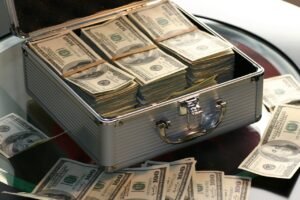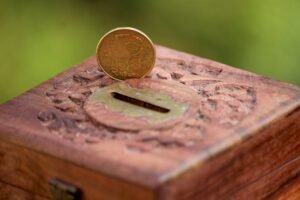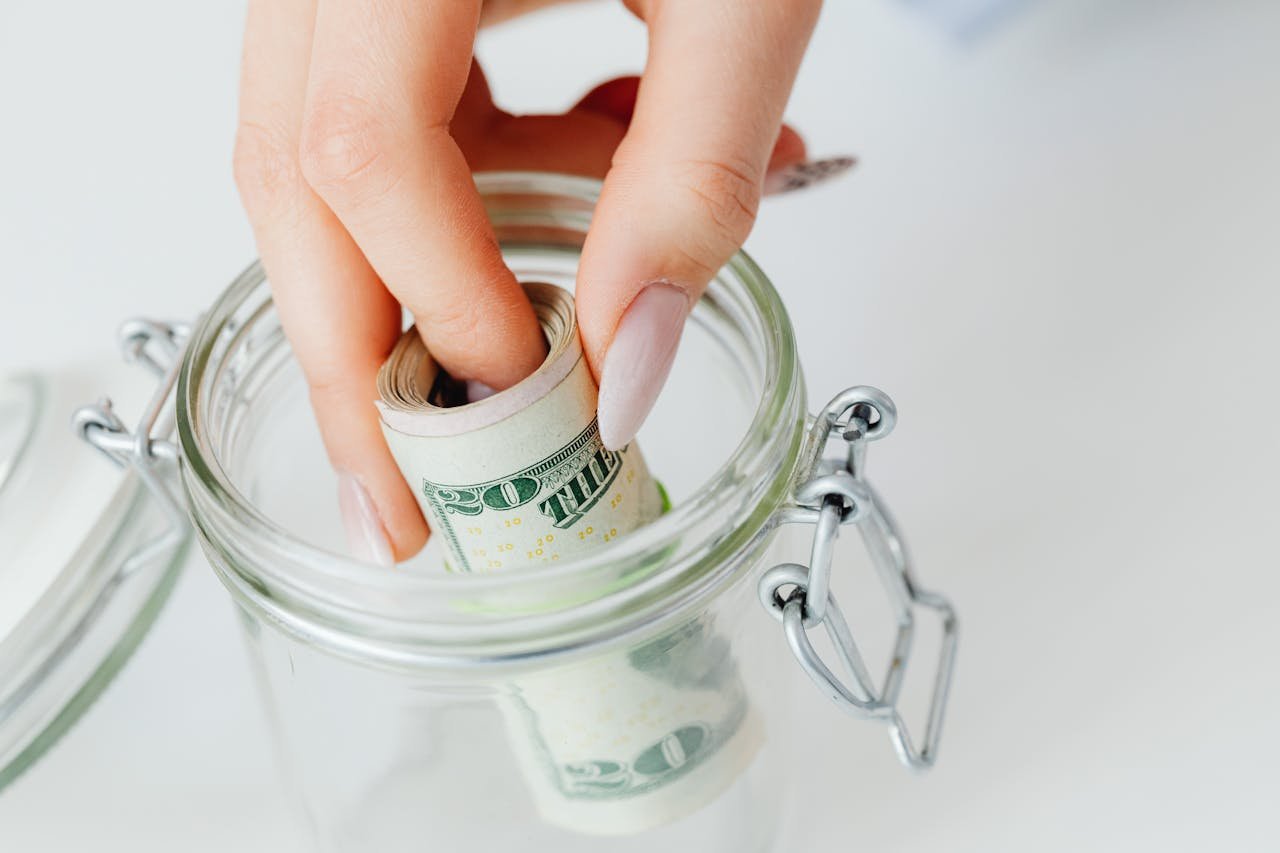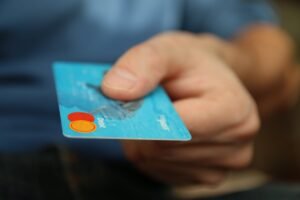What is an emergency fund and how to start one?

If you are looking for a way to improve your financial situation, one of the best steps you can take is to build an emergency fund. An emergency fund is a savings account that you can use to cover unexpected expenses, such as medical bills, car repairs, or job loss.
Having an emergency fund can help you avoid going into debt, reduce stress, and increase your financial security. A credit card, line of credit, or equity in a home is not an emergency fund.
The benefits of an emergency fund
We are trying to build wealth and stay out of debt, so an emergency fund is only going to be cash in a savings account. Anything else other than that will work against the greater goal of true financial peace.
But how do you start an emergency fund? And how does it help you build wealth? Here are some tips and benefits to consider.
How to start an emergency fund
The first thing you need to do is to set a goal for your emergency fund. A common rule of thumb is to save enough money to cover three to six months of your essential living expenses for a fully funded emergency fund.
This amount may vary depending on your income, expenses, and lifestyle. You can use a budgeting app or a spreadsheet to calculate how much you need to save.
Mini emergency funds while still in debt
If you currently have debt other than a mortgage like credit cards or a car payment, you may also consider a mini emergency fund. A good rule of thumb for a mini emergency fund would be to save $1,000 for surprise expenses.
Think of this as a buffer for small, unexpected expenses like car repairs or a trip to the doctor’s office. This will help keep from accumulating more debt while you are trying to pay off your current debt. This is the very first thing that should be done when preparing to pay off your debt and be on your road to debt freedom.
Once you have a goal, you need to find ways to save money for your emergency fund. Here are some ideas:
- Automate your savings. You can set up a direct deposit or a recurring transfer from your checking account to your savings account every month. This way, you can save money without thinking about it.
- Cut back on unnecessary spending. You can review your spending habits and identify areas where you can save money, such as eating out, entertainment, or subscriptions. You can use the money you save to boost your emergency fund.
- Increase your income. You can look for ways to earn extra money, such as taking on a side hustle, selling unwanted items, or asking for a raise. You can use the extra income to grow your emergency fund faster.
- Save windfalls. You can use any unexpected money you receive, such as tax refunds, bonuses, or gifts, to add to your emergency fund.
- The best place to keep your emergency fund is in a high-yield savings account that offers a competitive interest rate, easy access, and low fees. You can compare different options online or ask your bank for recommendations.
- Never put your emergency fund in any investments like stock, bonds funds, CD’s, realestate, or anything else that limits you to quickly access the money when an emergency happens. Investments like stocks can go down and deplete your emergency fund when you are in an emergency. Always keep your emergency fund where it is safe and easy to access.
How an emergency fund helps you build wealth

Having an emergency fund can help you build wealth in several ways:
- It protects you from debt. If you have an emergency fund, you don’t have to rely on credit cards or loans to pay for unexpected expenses. This can save you money on interest and fees and help you maintain a good credit score.
- It allows you to invest with confidence. If you have an emergency fund, you can invest your other money (not your emergency fund) in other assets, such as stocks, bonds, or real estate, without worrying about losing your savings. This can help you grow your money over time and achieve your long-term financial goals.
- It gives you peace of mind. If you have an emergency fund, you don’t have to stress about how to pay for emergencies. This can improve your mental health and well-being and help you focus on other aspects of your life.
You also might be interested in our article called 6 Tips to Build Wealth Like an Everyday Millionaire.
When to use and not use an emergency fund
An emergency fund is meant for emergencies only. This means that you should only use it for expenses that are urgent, necessary, and unpredictable. For example, you should use your emergency fund if:
- You lose your job and need money to pay for rent, food, and utilities.
- You have a medical emergency and need money to pay for treatment or medication.
- Your car breaks down and needs a major repair that affects your ability to work or travel.
- Your home is damaged by a natural disaster and needs urgent repairs.
You should not use your emergency fund for expenses that are not emergencies. For example, you should not use your emergency fund if:
- You want to buy something that is not essential, such as a new gadget, clothing, or vacation.
- You have a planned expense that you can save for in advance, such as a wedding, birthday party, or holiday gift.
- You have regular expenses that you can budget for, such as groceries, gas, or insurance.
Using your emergency fund for non-emergencies can deplete your savings and leave you unprepared for real emergencies. It can also make it harder for you to replenish your emergency funds and reach your financial goals.
You also might be interested in our article called How to Set Financial Goals and The Benefits of Having Them.
Conclusion
In an article by Nerdwallet called Emergency Fund: What It Is and Why It Matters states “Everyone needs to save for the unexpected. Having something in reserve can mean the difference between weathering a short-term financial storm or going deep into debt.”
Emergency funds are one of the most important tools for financial success. It can help you avoid debt, invest wisely, and live with less worry. To start an emergency fund, you need to set a goal, save money regularly, and keep it in a safe and accessible place.
You also need to know when to use and not use your emergency fund for different situations. With this, you can build a solid foundation for your wealth and happiness.




